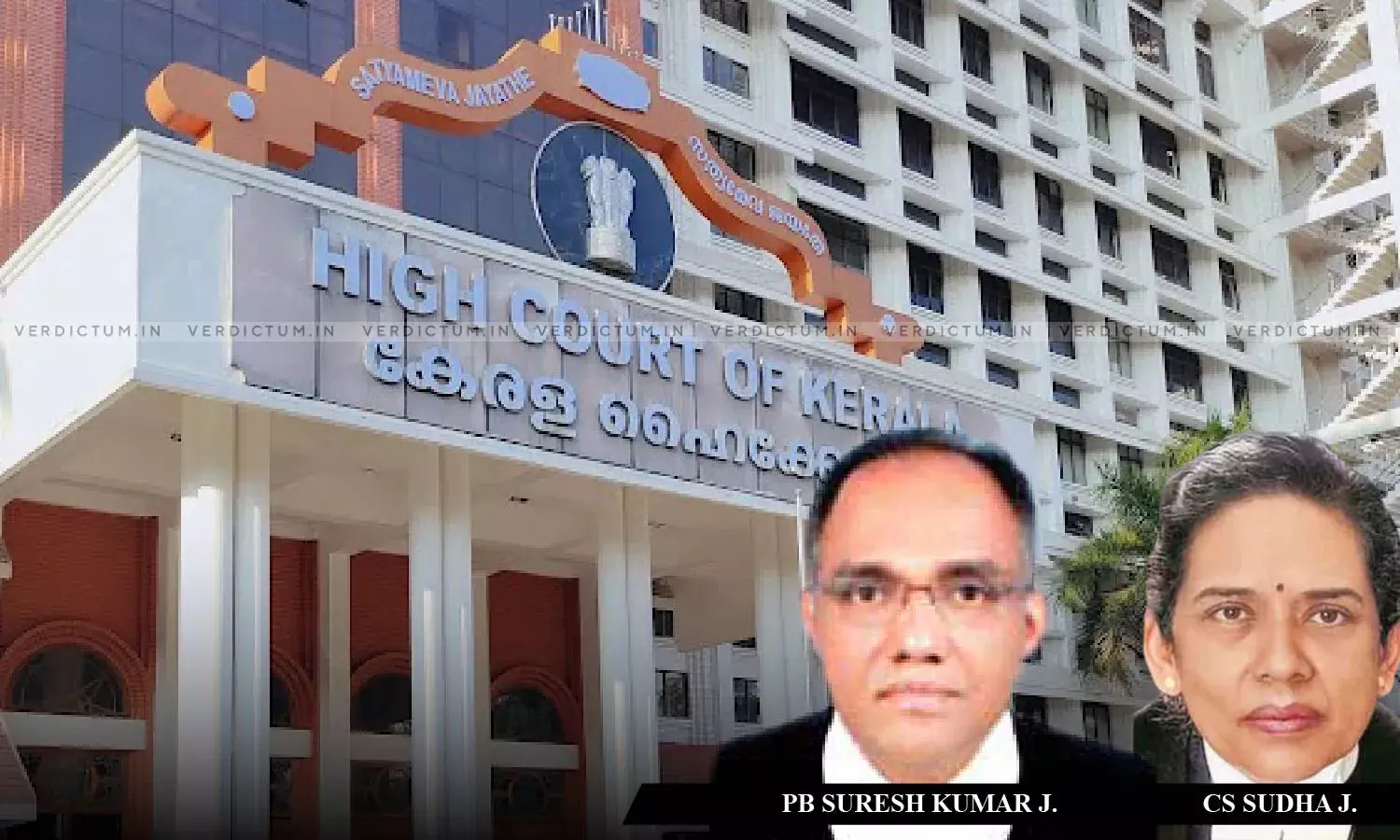Will Have Effect Of Staying Provisions Of Disabilities Act- Division Bench Of Kerala HC Refuses To Stay Direction To Implement Act
The Kerala High Court recently refused to stay the operation of impugned judgment of a Single Judge whereby directions were issued to Educational Officers to effectively implement the provisions contained in the Persons with Disabilities (Equal Opportunities, Protection of Rights and Full Participation) Act, 1995 (the 1995 Act) and the Rights of Persons with Disabilities Act, 2016 (the 2016 Act) concerning reservation of differently abled persons for appointments in aided schools.
The bench of Justice P.B. Suresh Kumar and Justice C.S. Sudha observed that "staying the impugned judgment as such will have the effect of staying the provisions contained in the 1995 and 2016 Acts relating to reservation in appointments as also the directions issued by the Apex Court for implementation of the same."
The appeal had been preferred against the order of the Single Judge wherein certain directions were issued with respect to reservation in vacancies and appointments-
- 3% of reservation of total vacancies and backlog in appointments should be filled up upto April 18, 2017;
- 4% of reservation of total vacancies from April 19, 2017 and backlog up-to-date in appointments should be filled up against vacancies that arose after November 8, 2021; and
- the appointments made against vacancies that arose after November 18, 2018 which have not been approved till date, should be considered for approval, only after filling up the earlier backlog vacancies ( the main grievance is against this direction).
Advocate P.K. Nandini appeared for the appellants and argued that the blanket direction to the Educational Officers to refrain from approving appointments validly made until the backlog was filled up, was certainly unwarranted.
Government Pleader, on other hand submitted on behalf of the respondents that even though the government had stiffly opposed that the backlog in the appointments should have been filled up in the vacancies which arose from November 18, 2018, the government had decided to accept and comply with the judgment and directions contained therein.
The Court observed that even though the 1995 Act and the 2016 Act provided for reservation of differently abled persons in appointments in establishments including aided schools, the same had not been given effect to for several years by the State governments, because of their 'recalcitrant attitude', despite series of direction were being issued by the Supreme Court.
The Court noted that there were indeed practical impediments in giving effect to the directions for want of necessary guidelines and observed that instead of resolving it, the educational authorities started approving the appointments already made ignoring the order of the Single Judge, flouting the provisions in the 1995 Act and the 2016 Act, which were patently illegal. "the appellants cannot be heard to contend that the learned Single Judge has acted illegally in directing the authorities to refrain from approving the same until the illegality in the said appointments are removed by filling up the backlog." said the Court.
The Court further observed that the learned Single Judge had only directed that proposals for approving the said appointments shall be deferred until the backlog was filled up, indicating clearly that once the backlog was filled up, the existing proposals for approval of appointments could be taken up for consideration and approval orders.
It was further brought to the notice of the Court by the Government pleader that large number of vacancies were likely to arose at the end of the current financial year thereby accommodating all the qualified differently abled persons and granting approvals to appointments already made.
Therefore, the Court observed that if the backlog of differently abled persons were filled the impugned judgment would not stand in way of the Educational Officers and "if required, subject to the final outcome of the writ appeals, for we think that the said clarification would redress substantially the grievances voiced by the appellants and there may not be any need at all to decide all the appeals on merits." ordered the Court.
Click here to read/download the Order



